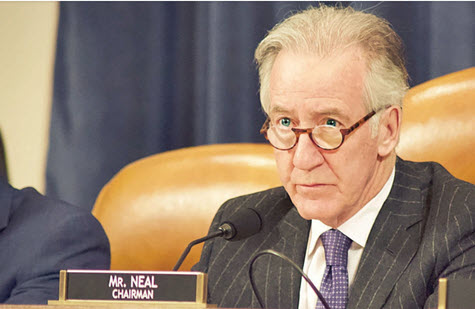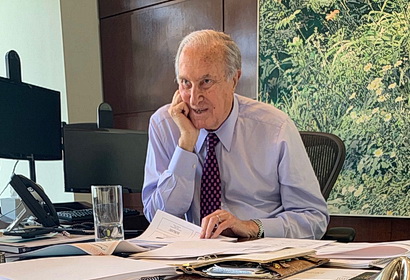
The Biden Administration released a policy letter on Feb. 16 enabling states to more readily access federal grant dollars to help finance mass transit and other large-scale transportation projects. (FTA “Dear Colleague” letter and CQ, Feb. 16).
- The letter from Acting Federal Transit Administrator Nuria Fernandez reverses Trump-era policy from 2018. The earlier policy restricted the amount of transportation money states could receive from the U.S. Department of Transportation (DOT) through the Capital Investment Grants (CIG) program if the project also received a low-interest DOT loan.
- The Feb. 16 letter clarifies that DOT loans extended under the Transportation Infrastructure Finance and Innovation Act (TIFIA) or the Railroad Rehabilitation & Improvement Financing (RRIF) program – when repaid with non-federal funds – can count toward the state’s cost-share requirement to also qualify for a “new starts” CIG grant.
- The Roundtable has long supported the FTA’s recent step. “Loans repaid [by states] with interest are fundamentally different instruments than grants awarded with no repayment obligation,” The Roundtable noted in a 2019 letter to the House’s Transportation and Infrastructure Committee. The letter added, “Credit-worthy state and local project sponsors who successfully navigate the TIFIA loan process should not be penalized for seeking a CIG grant as a separate, necessary layer in the capital stack to finance a massive transit project.” (Roundtable Weekly, May 3, 2019)
- The FTA’s policy change should help large-scale transportation projects of national and regional significance that may qualify for both CIG grants and TIFIA loans. [See nationwide lists of CIG projects and TIFIA projects.] One prominent example is the New York-New Jersey Gateway Program, a $30 billion modernization of Amtrak’s Northeast Corridor.
- Senator Bob Menendez (D-NJ) applauded the Biden Administration’s action, noting that the effect of the 2018 policy was to “stall the Gateway project” which includes replacing a 110-year-old bridge and construction of a “new Trans-Hudson rail tunnel.” (Menendez press release, Feb. 16)
- The Real Estate Board of New York (REBNY) applauded the Biden FTA’s move. “Restoring access to federal funding for Gateway is an initial but pivotal step toward advancing the project, which will improve mass transit service for millions of commuters, create thousands of good jobs and play a significant role in getting our regional and national economics back on track,” said REBNY President Jim Whelan. (REBNY news release, Feb. 18)
Movement on Infrastructure
- Biden Transportation Department Secretary Pete Buttigieg hinted at the FTA’s policy change during his January confirmation hearing, emphasizing that he was committed to working with lawmakers on projects such as Gateway. (Bloomberg, Jan. 21, 2021)
- Also this week, President Biden discussed plans to improve the nation’s infrastructure with labor leaders, including Sean McGarvey, president of North America’s Building Trades Unions. (Wall Street Journal and White House Remarks, Feb 17) Roundtable President and CEO Jeffrey D. DeBoer and McGarvey discussed infrastructure policy in a video interview released during RER’s annual meeting last June. (Roundtable Weekly, June 19, 2020)
- The Biden Administration is expected to reveal its infrastructure package soon as part of its “Build Back Better” agenda to spur economic recovery from the repercussions of the pandemic.
- Additionally, The Senate Environment and Public Works Committee has scheduled a hearing on transportation infrastructure on Feb. 24, entitled “Building Back Better: Investing in Transportation while Addressing Climate Change, Improving Equity, and Fostering Economic Growth and Innovation.”
The Roundtable’s recommendations regarding infrastructure financing and permitting will again be featured in our forthcoming 2021 Policy Agenda. The Roundtable is also a member of the “Build by the 4th”coalition, led by U.S. Chamber of Commerce, which urges Congress to pass a comprehensive infrastructure bill by Independence Day 2021.
# # #








